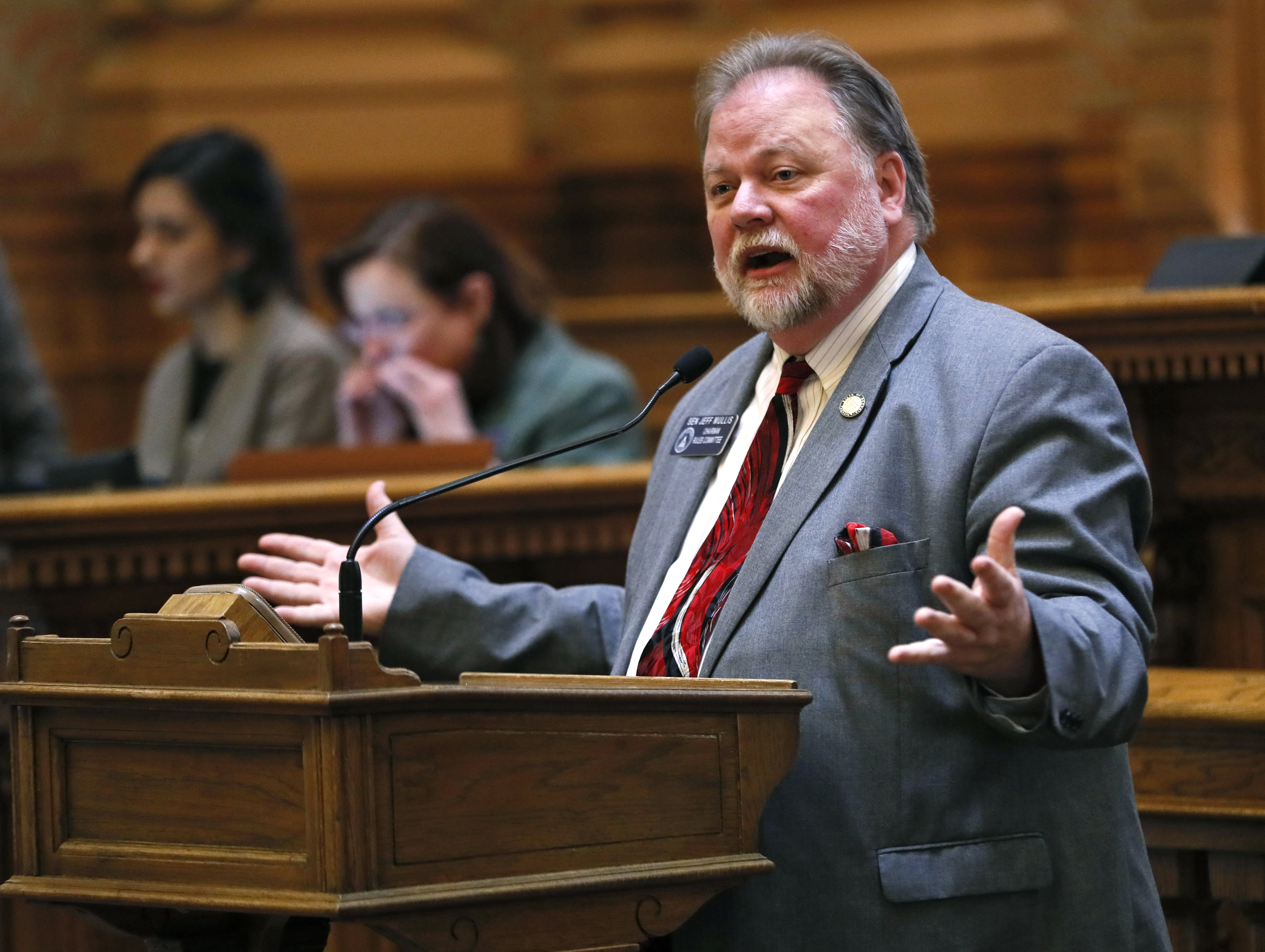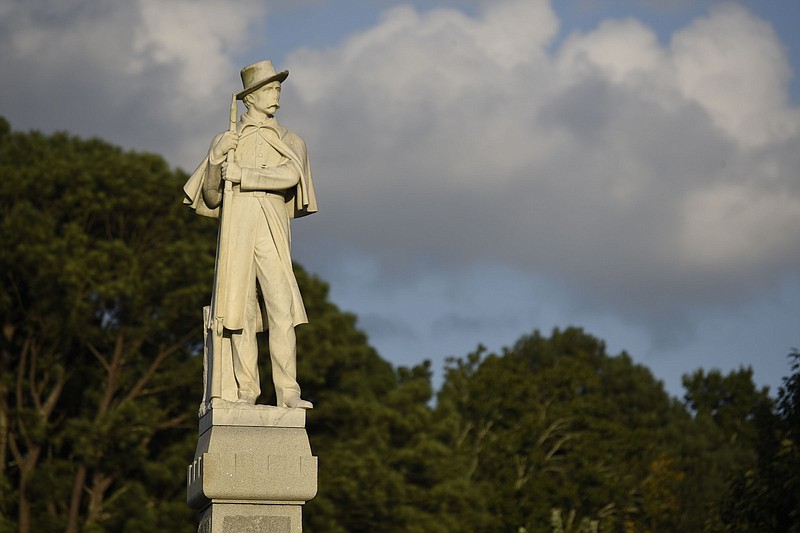A committee did not take action on Georgia state Sen. Jeff Mullis' monuments-protection bill Thursday after a debate about a provision that prevents moving the symbols out of public view.
Mullis' bill says government officials should have the ability to move a monument. However, the bill reads, the monument must go to "a site of similar prominence, honor, visibility, and access within the same county or municipality." The legislation bans the government from moving the structures into museums unless they are already in a similar location.
 Senate Rules Chairman Jeff Mullis takes to the well to defend the committee assignments Wednesday, Jan. 16, 2019 in Atlanta. Female senators on both sides of the aisle blasted what they're calling sexism in committee assignments after Sen. Renee Unterman was moved from her powerful position as the chairwoman of the health committee to the lower-profile science and technology. Lt. Gov. Geoff Duncan touted the fact that four committees are chaired by women this year. Two women chaired committees last year. Unterman, and Democrats, are arguing that the move is cosmetic, since those committees see very few bills. (Bob Andres/Atlanta Journal-Constitution via AP)
Senate Rules Chairman Jeff Mullis takes to the well to defend the committee assignments Wednesday, Jan. 16, 2019 in Atlanta. Female senators on both sides of the aisle blasted what they're calling sexism in committee assignments after Sen. Renee Unterman was moved from her powerful position as the chairwoman of the health committee to the lower-profile science and technology. Lt. Gov. Geoff Duncan touted the fact that four committees are chaired by women this year. Two women chaired committees last year. Unterman, and Democrats, are arguing that the move is cosmetic, since those committees see very few bills. (Bob Andres/Atlanta Journal-Constitution via AP)The bill applies to any monument, but it has the backing of the Sons of Confederate Veterans.
"My fear again is to just hide monuments or honors that have been important to communities in the past but may have a little different flavor for current communities," Mullis, R-Chickamauga, testified in the Government Oversight Committee on Thursday afternoon.
State Sen. Elena Parent, D-Atlanta, a member of the committee with another bill aimed at monuments, pushed back on this part of Mullis' proposal. She argued museums are better places for Confederate monuments than public squares are.
"Sometimes people are just zipping by monuments and they're not paying any attention because they're going on their daily lives," Parent said. "You may want to consider that actually, a monument in a museum, people are going to pause and consider the historical ramifications of what they're looking at in a way that they never would if it's just kind of sitting in public."
In addition to keeping monuments in their current, prominent locations, Mullis' bill gives local and state government officials the ability to sue vandals who damage the structures. He said he was motivated by attacks to monuments in North Georgia over the years.
In 2007, someone sneaked into a Chickamauga cemetery and tipped over an obelisk in honor of James Gordon, shattering it into three pieces. Gordon was one of the first white settlers in the region after the government took the land from the Cherokee Nation and divided the land in a 1933 lottery. His family ran a 500-acre plantation that has been preserved and is now owned by the city.
Last year, according to WTVC-News Channel 9, some vandals broke tombstones, ripped an American flag and stole a Confederate flag.
"Instead of destroying or moving or taking down monuments or have them destroyed, we need to simply add new monuments that are those of deserving nature from our local leadership in our communities now," Mullis said. "We just need to add new ones, not take away our old ones. Who knows? In 100 years, things that we do today could be controversial, could be things that communities in 100 years want to change and destroy."
Members of the Sons of Confederate Veterans spoke in favor of the bill Thursday, saying the monuments preserve history and honor the military. They also pointed to monuments of World War II and Vietnam veterans that have been vandalized around the country.
A pastor speaking on behalf of the NAACP read a statement against the bill, telling the committee: "We think this is offensive and should not be in many locations that we see throughout the South, and in some cases the North."
Parent's bill, on the other hand, would give local governments control of monuments in their communities. County commissioners or city councils could vote to remove the structures. In October 2017, the DeKalb County Commission voted to move a 13-foot-tall obelisk from downtown Decatur that honors the Confederacy and says the soldiers were of "covenant keeping race."
"If people up in [Mullis'] community want to preserve those monuments, what they see when they go shop and dine, that's totally fine," Parent said. "And this bill doesn't address that. But what it does say is, 'Why should this community be forced to keep something in perpetuity?'"
The committee also did not take action on Parent's bill Thursday.
Contact staff writer Tyler Jett at 423-757-6476 or tjett@timesfreepress.com. Follow him on Twitter @LetsJett.
